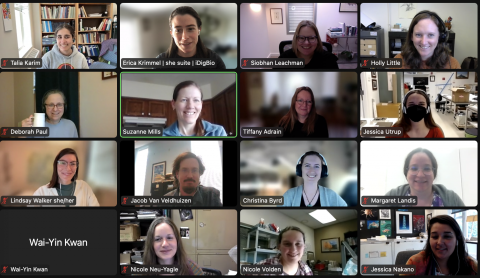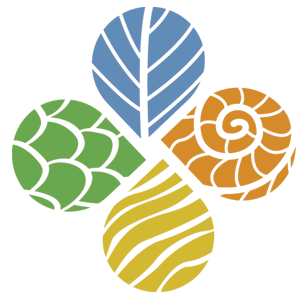
Thirty participants gathered virtually for a workshop, Using wikidata to capture and share information about people in paleontology, on March 29-31, 2022. This workshop was a hands-on introduction to finding, editing, and using data in wikidata, using people associated with paleontology collections (e.g., collectors, researchers, collections staff) as subjects. Wikidata offers a centralized, accessible platform for working collaboratively to disambiguate people associated with collections and mobilize biographical information about them. Storing biographical information in Wikidata facilitates discovery about who is doing what work across multiple paleontological collections, and with what impact. This shared information can be used to improve connections across institutions and individuals, to augment local data records, and to encourage expertise-sharing.
The daily rhythm of the workshop involved an opening synchronous block of time, followed by an asynchronous work period, and concluding with another synchronous block for group discussion. This format (inspired by a similar workshop for bat collectors) was popular with participants in a post-workshop survey, and allowed the group to focus on hands-on learning. Synchronous presentations introduced basic editing in Wikidata and provided a demo of how to use OpenRefine for bulk editing Wikidata. During the asynchronous time, participants worked on creating and editing Wikidata records for a predetermined list of people associated with collections, e.g., Charles Schuchert and Julia Anna Gardner. Together, workshop participants created or enhanced Wikidata records for around 100 individuals from this list, including a dozen female collectors previously known only by their husband’s names, e.g., “Mrs. Paul E. Drez,” who we now know is Nancy Sue Drez.
During the workshop, participants began co-creating guidelines for disambiguating people and curating wikidata entries in the paleo context, including what types of information are ideal to capture (e.g., birth and death dates, research expertise, links to publications, links to archival materials, etc.). Keep an eye out for a forthcoming publication of these guidelines, which, despite their paleontological perspective, will be a useful Wikidata reference for any type of collection.
After the workshop, 85% of participants strongly agreed that it was worth their time, and the Paleo Data group is planning a second workshop to explore using Wikidata for fossil collecting localities. See the wiki page here for a full agenda from this first workshop, as well as copies of presentations and links to group discussion notes.




